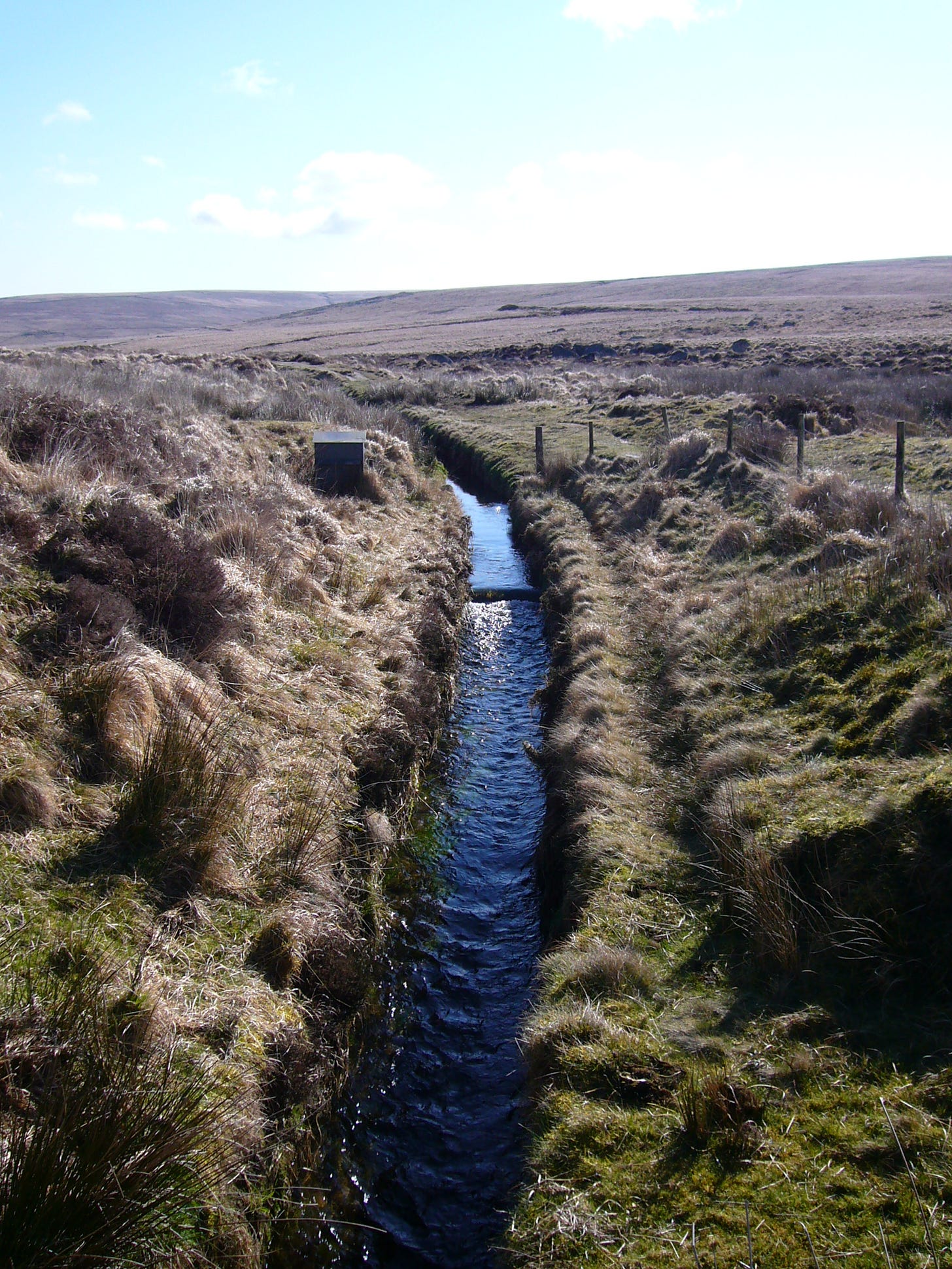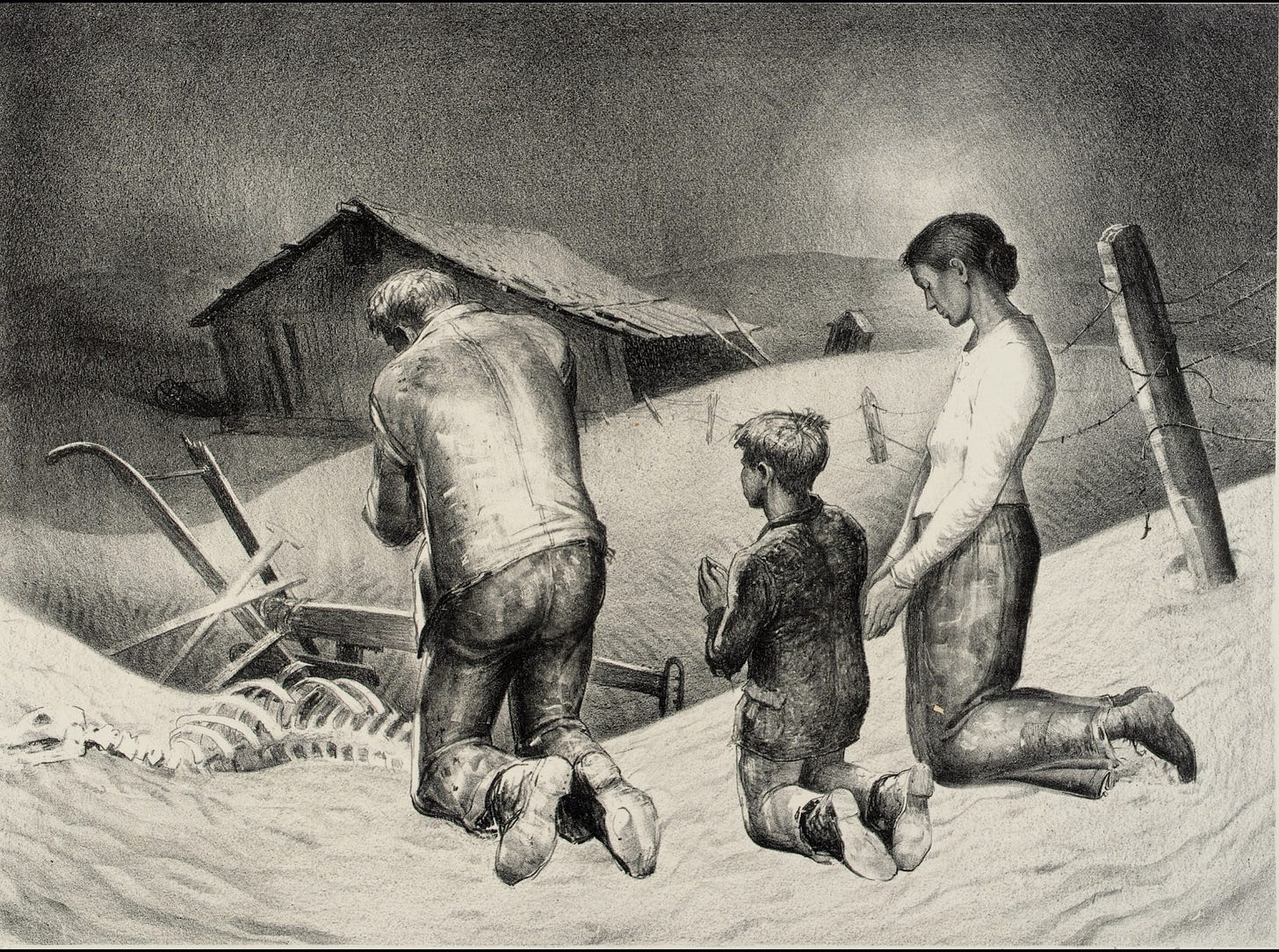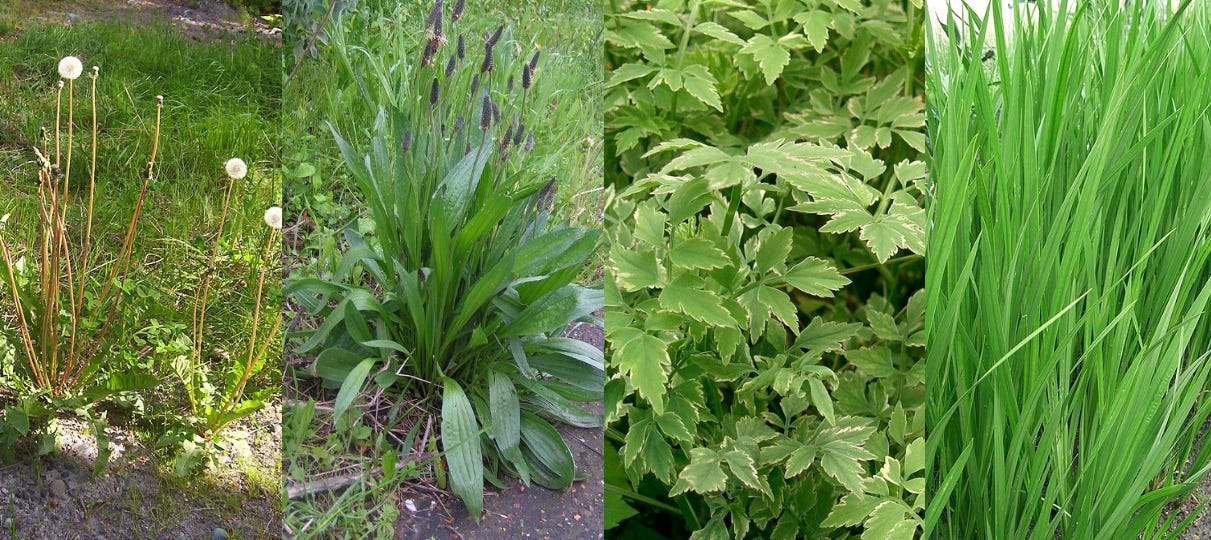This series My Medieval Farming Life is drawn from real, personal experience. It is about farming as a job, but without electricity, gas, machinery, fertilizers, indoor plumbing, or other important inventions that Industrial Revolutions brought.
See part 1 here for manure seasons, part 2 for invitation to a slaughter, and Intermission for variety of life. See full series here.
The week after next, we will look into some of The Unseen, of our histories on the the Vegas-Eden spectrum.
Mey’s sister-in-law did not want to go back to her parents’ home. Her husband and in-laws wanted her to stay, too. But there was not enough food for all the mouths. Because she had not borne any children, or was pregnant by any signs, she had to return to her native household to be fed.
“I miss her,” Mey mumbled on the final bite of a sweet potato.
I didn’t say anything. Chewing on the last steamed bun, my mouth was jammed.
“Rain, rain, rain,” She continued, “When is it going to rain?”
Heaven willing, let there be rain soon — so I heard the adults say. They also said it has been a year of some importance. The fields produced barely enough for each family. For some families, it meant not enough.
“Heaven willing, it will rain!” I repeated the adults’ words and stood up in the tree’s shade. “We can help water the corn.”
Through the field, we started walking to the creek nearby. Under my feet, the once moist soil crumbled to dirt, and dirt scattered into pale dust. I saw corn stalks still stand erect, but much shorter than they once were. Leafs withered into brittle yellow fibers that broke with a pinch between two fingers. Thin husks couldn’t cover cobs. The kernels, at a season when they were supposed to puff up like specks of amber, looked like empty rice hulls colored in grey and white.
Wind rustled through corn tassels and leaves, but I heard only a disturbing silence — the absence of a creek’s babbling.
The creek was there, but water disappeared. In the water’s usual course, two loaches twisted and flapped, trying to slink into more moist parts of the mud. But the sun was still out; the mud may not be watery for long.

Staring at the mud, we clutched at our small buckets and decided to try the river for water. On our way upstream, I saw sweet flags droop their heads into listless bows. When we passed the last patch of grass that could barely hide a moth and stepped onto a dirt road, someone called to us from afar:
“Hey, kids! Where are you going? River? No, let the adults get water!” It was Mey’s brother. He put down the carrying pole from his shoulder, and water splashed out of the hanging buckets on both ends.
“We want to help!” Was our collective response.
He laughed. “Look, kids, it can’t be helped. Only Heaven helps. Drought, flood, pests, hot, cold…we can’t do much. Heaven willing, it rains soon!” Then he added: “I’ll do the watering. Don’t worry!”
We already ate our day’s food; we must do our day’s work! We insisted.
“I saw Luke and Nib earlier. They said they’ll be at the butcher’s, for pork bones. You can get some —” At the words “pork bones” and certainly before Mey’s brother realized it, we sprinted away towards the butcher’s.
Crashing through the butcher’s door, we lost our composure at the smell of the soup being made by Luke and his master: boiling water, salt, green onions, and pork bones’ last pinch of fat dissolving in the heat. Nib later told me that I looked like a starving wolf ogling at a chicken coop, when Luke handed me a pack of bare pork bones. Indeed, I swallowed hard to stay calm, as the aroma of cold pig fat — along with dried freshness of lotus leaf wraps — hit both my nose and mind. A big bowl of pork bone soup paired with rice: that was my idea of a heavenly meal.
The butcher invited us to share the pork bone soup. Holding a bowl of hot savory liquid, everyone started to talk. Mey lamented that her sister-in-law had to leave.
“That’s how it goes,” The butcher commented. “Too many mouths, not enough food, something has to give. If it rains enough, she’ll be back.”
“When will it rain?” Mey asked.
“Heaven knows. Heaven willing, it’ll rain soon.” The butcher sipped on the soup, “Don’t worry, there were worse and harder years. I made it through, and you can too.”

“What do you mean?” Nib asked.
“Well, there was no rationed rice, sweet potatoes, corn, or anything else. So I went to the hills and dug up whatever I could eat.”
“What did you eat, sir?” I was curious.
“Dandelions. Plantagoes. Water celeries. Sweet flags.” The butcher said, “And just about any ferns.” He sipped on the soup and exclaimed: “Delicious!”
We all fell silent. I stared at my soup and didn’t know what to say. It was Luke who broke the hush.
“Master, what if dandelions and ferns ran out, but it still didn’t rain? What did you eat?”
“Trees. Not the fruits. I mean: barks, leaves, branches, roots and all. They will do. Barks were not that awful. Leaves were decent; they kept me half-full all the time.” He sounded even a little cheerful.
I gulped down a mouthful of pork bone soup. I didn’t want to think about having to eat tree barks and leaves. But dandelions, plantagoes, and ferns — they sounded like something I could handle.

For the rest of this little impromptu feast, we didn’t talk more about food. Until we thanked the butcher before departing, he gave us these words:
“Save all the food: rice, sweet potatoes, corn, what have you. Save them until it rains. Also: sleep! In your sleep, you don’t need food.”
Days and maybe weeks passed, and there was still no drizzle or plausible gathering of clouds. Luckily, I collected lots of dandelions, plantagoes, water celeries, and sweet flags. In case my ration of rice and sweet potatoes dropped further, I could eat them to fill the stomach.
One chilly morning, when the sun was still behind the hills, I woke up and heard my stomach grumble. I cursed myself: another day’s food already spent! I should sleep, so I wouldn’t need to eat for a while.
I must have had a foot in the realm of dreams, when I heard a pelting sound full of moisture approaching from distance. It might have started to rain.
Thank you for reading Earthly Fortunes. If you like it, please share it. Subscribe for free to hear more about this medieval farming life I lived.
Let me know your thoughts and questions in the comments or DM me on Twitter.



